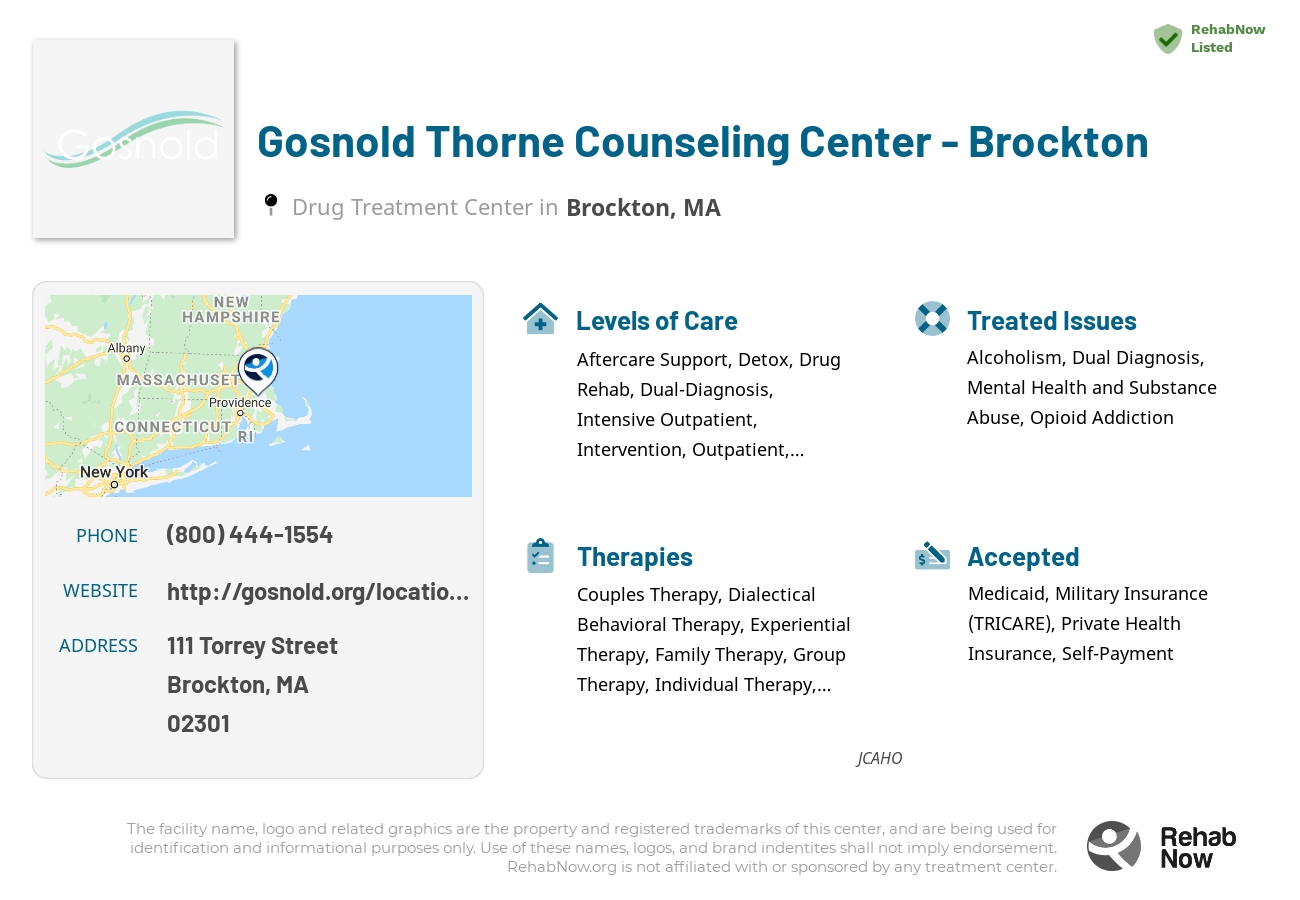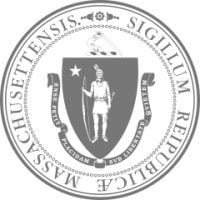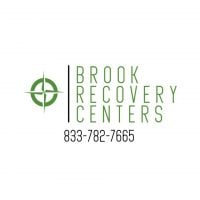Gosnold Thorne Counseling Center - Brockton
Drug Rehab Center in Brockton, Massachusetts
Gosnold Thorne Counseling Center in Brockton, MA offers comprehensive evidence-based addiction treatment and mental health services, including individual and group therapy, yoga therapy, detox, and rehab for individuals suffering from co-occurring disorders.
About Gosnold Thorne Counseling Center - Brockton in Massachusetts
Gosnold - Brockton is an addiction treatment facility located in Brockton, Massachusetts. Established in 1972, it has a long-standing history of providing quality care for individuals suffering from alcoholism, dual diagnosis, opioid addiction, and drug addiction. Accredited by JCAHO, Gosnold - Brockton meets high standards of quality and safety in its treatment programs. With a range of levels of care available, including detox, drug rehab, dual diagnosis, outpatient, and residential treatment, Gosnold - Brockton offers comprehensive services to address the diverse needs of individuals seeking recovery. The facility accepts private health insurance, making it accessible to a wider range of individuals in need of treatment.
Gosnold - Brockton offers a variety of services to assist individuals struggling with addiction and substance abuse. Their treatment programs include aftercare support, intensive outpatient services, intervention services, and dual-diagnosis treatment. They provide a comprehensive approach to recovery, focusing not only on addressing the physical aspects of addiction but also addressing underlying mental health issues. With a strong emphasis on individualized care, Gosnold - Brockton tailors treatment plans to meet the unique needs and circumstances of each client. Whether through detoxification, residential treatment, or outpatient care, Gosnold - Brockton aims to support individuals in their journey towards lasting recovery.
Genders
Ages
Modality
Additional
Accreditations

JCAHO
Conditions and Issues Treated
Opioid addiction has become a significant health problem in the United States. When a person’s life becomes unmanageable because of an opioid addiction, treatment can help them get sober. Treatment includes medical care and counseling.
“With so many people struggling with opioid addiction, we need more care and attention for those who want to quit. Opioid addicts often take opioids when they experience a painful injury – that’s how the cycle starts! When someone begins taking their medication differently than prescribed or takes an excessive amount of drugs, it means they’re hooked on drugs and in danger of overdosing.
The most successful way to beat this is through detoxing from these types treatments at Gosnold Thorne Counseling Center - Brockton in . Most facilities start by using medical support during the process while providing counseling services; rehabilitation comes later on after treatment has been completed successfully.
A “dual diagnosis” is when the individual has two medical issues at the same time. The top co-occurring mental disorders with addiction are depression, anxiety, ADHD, bi-polar disorder. Addiction is also considered a mental illness that is not a choice but rather a medical condition. Addiction can be caused by any number of underlying issues.
Dual diagnosis is provided by Gosnold Thorne Counseling Center - Brockton to treat addictive tendencies as well as any untreated mental illnesses. This ensures successful long term health and recovery for patients after treatment has been completed.
Dual diagnosis is provided by Gosnold Thorne Counseling Center - Brockton to treat addictive tendencies as well as any untreated mental illnesses for people in Massachusetts. This ensures successful long term health and recovery for patients after treatment has been completed.Levels of Care Offered
This center offers a variety of custom treatment tailored to individual recovery. Currently available are Aftercare Support, Detox, Drug Rehab, Dual-Diagnosis, Intensive Outpatient, Intervention, Outpatient, Residential, with additional therapies available as listed below.
The first level of recovery is detox. It involves giving a person the opportunity to get the toxins out of their body safely. The individual receiving treatment at Gosnold Thorne Counseling Center - Brockton typically will get ill during detox, and they will often start using again to get rid of unpleasant emotions and complicated physical responses. It is why having a Massachusetts medical professional present is so critical. A medical professional can make sure that patients do not start using again during detox and stay physically healthy during the process. They will also have treatment on a mental level to relieve their symptoms and guide them through the process.
Outpatient addiction treatment is beneficial for people who are able to function well in their day-to-day lives. It is recommended for people who are not yet ready to end their relationships with friends or family members who might be encouraging drug and alcohol use.
Intensive outpatient treatment is beneficial for:
- People who are able to attend treatment more than 3 times per week.
- People who do not meet the criteria for inpatient treatment.
- People who are able to contribute to their own recovery outside of the treatment center.
- People who are motivated towards recovery.
- People who are able to overcome addiction on their own without the need for higher levels of care.
Outpatient programs at Gosnold Thorne Counseling Center - Brockton, the Brockton resident can live with their family while continuing with their job or studies. Treatment includes educating the patient on drug abuse, medications, and counseling sessions at the individual or group level. Outpatient treatment plans cover diagnosis, detoxification, management, and counseling. They are a popular option for those who have graduated from inpatient facilities.
Residential treatment programs are those that offer housing and meals in addition to substance abuse treatment. Rehab facilities that offer residential treatment allow patients to focus solely on recovery, in an environment totally separate from their lives. Some rehab centers specialize in short-term residential treatment (a few days to a week or two), while others solely provide treatment on a long-term basis (several weeks to months). Some offer both, and tailor treatment to the patient’s individual requirements.
Interventionism is a technique used to help an addict get clean and sober. The process begins with the addict’s family, friends, and co-workers gathering together to confront the addict about their addiction. This often happens when the addict is in the middle of a particularly bad bout of drug abuse.
The addict’s friends and family members are encouraged to share their feelings about the addict’s behavior with them, as well as what it’s doing to the addict and their loved ones. At first, the addict is typically resistant to this form of treatment because they feel it’s an intrusion on their private life. They may be upset or even angry at the interventionist for orchestrating this meeting. Over time, though, most addicts come to understand that their loved ones are only trying to help them.
During the intervention, the addict’s family and friends are encouraged to tell the addict how their drug use has affected their lives. The interventionist is there to help everyone organize their thoughts and communicate their message. They also help to ensure that the conversation doesn’t become aggressive or combative, which could put the addict on the defensive and make them reject the intervention.
This kind of treatment aims to get the addict in touch with their feelings about their addiction. They are encouraged to speak honestly about their drug use, as well as how it’s making them feel. They’re also asked to consider the consequences of their drug use and how it’s hurting their loved ones. The addict is allowed to see how their addiction has become a problem for everyone around them.
Without aftercare support, addicts can easily relapse back into addiction. It is crucial to integrate the addict back into society. Aftercare support should take place after outpatient treatment has ended.
There are a few different types of aftercare support that patients can seek after completing an inpatient treatment program:
- 12 Step Self-help groups (AA, NA)
- Therapeutic communities,
- Long-term, structured sober living arrangements
- Halfway houses (residential treatment centers)
Many different support groups exist for addicts to seek help after treatment. Some are more effective than others, depending on the person’s addiction, background, and other factors.
Therapies & Programs
Individual therapy is a form of counseling where you meet with a trained professional one-on-one. Meeting with a therapist in this setting allows for a personal and trusting relationship to be built. This allows the patient to open up about sensitive or private issues they may not feel comfortable discussing in a group. Individual therapy helps identify the root causes of your addiction, which can help prevent relapse.
Couples therapy for drug addiction is a unique form of therapy that allows family members to work through the emotional issues of their loved one’s addiction together. Family members can support each other while learning how to cope with the addiction and encourage healthy changes. The two will work with a therapist to learn how the addiction affects themselves and the relationship.
Family therapy is often done alongside drug treatment to help addicts stay sober. The goal of family therapy for drug addiction is to create an environment where communication can happen without judgment, hostility, or blame. The therapist will sit with the family so they can learn how to communicate differently and provide new tools for dealing with emotions so that people don’t want to drink or do drugs. It’s important for families to focus on relapse prevention plans during treatment so that if the addict feels like they want to use again, they’ll know what steps they need to take together to prevent it from happening again in the future.
Group therapy sessions are another common addiction recovery service. These group sessions typically involve six to 12 addicts who meet regularly with a trained professional for support and guidance.
During these sessions, the group shares their experiences with one another and provides feedback that can help each member avoid relapse or overcome specific obstacles they are facing in their recovery process. With this type of support and guidance, addicts can feel like they are part of a community that understands their struggles and will help them get through the hard times.
Many people struggling with drug addiction have experienced some form of trauma in their lives. It is crucial that these individuals seek out professional help; otherwise, their drug abuse and addiction will likely continue.
Therapists and counselors at drug treatment centers employ several treatment programs to help people struggling with drug addiction, including trauma therapy. Trauma therapy helps people dealing with addiction by allowing them to confront the traumas of their past and move past them.
It is important to note that trauma therapy should not be confused with PTSD (post-traumatic stress disorder). Rather, it is used to treat the effects of trauma, which are often at the root of addiction.
Dialectical Behavior Therapy was developed in the 1980s to treat chronically suicidal individuals. It is a cognitive-behavioral therapy that combines standard DBT with strategies derived from Zen Buddhism, such as mindfulness training.
DBT has been adapted for use with other types of psychiatric problems, including eating disorders, substance abuse disorders, borderline personality disorder, posttraumatic stress disorder (PTSD), and other personality disorders. Dialectical Behavior Therapy is considered a psychosocial treatment of BPD. This means that while it can be used alone or in conjunction with drug treatments, DBT does not rely on medications to treat the disorder. Instead, DBT aims to help patients change their thinking and behavior.
Cognitive Behavioral Therapy (CBT) focuses on the underlying thoughts and behaviors that caused the problem of addiction in the first place and may cause a relapse. Negative feelings are common in drug abuse disorders, but they can lead to co-occurring disorders if not recognized. CBT involves strategies that help to change the behavior pattern by restructuring negative thoughts into positive ones. It helps to remove these feelings, and it provides long-term benefits. Also, CBT promotes self-awareness and self-control. It can be administered as a monotherapy or as part of combination therapy.
CBT can improve the patient’s mood, reduce drug cravings and boost success rates on treatment plans. Regular practice can help individuals handle negative attitudes, thoughts, and feelings without turning to drugs or alcohol. The core belief of Cognitive Behavioral Therapy (CBT) is that one’s moods, behaviors, and actions are all connected. Individuals can improve their quality of life using CBT. It helps addicts understand the patterns of thought and feelings that cause them to use drugs or alcohol and develop a healthy response.
Patient Experience
Experiential Therapy at Gosnold Thorne Counseling Center - Brockton
Drug addiction causes the formation of abnormal connections between neurons in the brain to form due to repeated exposure to drugs. These connections are responsible for addictive behaviors to drugs. Experiential therapy is done with patients individually and is different from traditional talk therapy. This therapy can help people revisit past traumas, heal, and move on in life in a more authentic way.
Experiential therapy uses activities to recreate experiences that may have caused trauma or negative emotions. These activities include role-playing, arts and crafts, animal care, music, or rock climbing. The individual will gradually experience calmness and love and change their perception positively through this therapy. Other than drug addiction, experiential therapy can be helpful for behavioral or eating disorders.
Payment Options Accepted
For specific insurance or payment methods please contact us.
Is your insurance accepted?
Ask an expert, call (888) 674-0062
Gosnold Associated Centers
Discover treatment facilities under the same provider.
- Gosnold Treatment Center - Falmouth in Falmouth, MA
- Gosnold - Centerville in Centerville, MA
- Gosnold at Emerson House in West Falmouth, MA
- Gosnold - Miller House in Falmouth, MA
- Gosnold - Thorne Counseling Center in Brockton, MA
Learn More About Gosnold Centers
Additional Details
Specifics, location, and helpful extra information.
Brockton, Massachusetts 2301 Phone Number(800) 444-1554 Meta DetailsUpdated November 25, 2023
Staff Verified
Gosnold Thorne Counseling Center - Brockton Patient Reviews
There are no reviews yet. Be the first one to write one.
Brockton, Massachusetts Addiction Information
Massachusetts has one of the highest rates of drug abuse in the country. More than half a million Massachusetts residents abuse alcohol while more than 1.5 million use illegal drugs each year. This drug and alcohol usage is the cause of over 8% of all deaths in the state. In 2017, Massachusetts ranked in the top 10 of the states with the highest opioid overdose rates.
Brockton, MA has one of the highest overdose death rates in the state. Over 1,000 people died from unintentional opioid-related overdoses in 2014 alone. The high rates of drug abuse are causing problems in many different areas, including healthcare, crime, and education. One way to find the best treatment facility in Brockton is to consult a referral service. Some of these services specialize in addiction treatment, while others provide referrals to various treatment providers.
Treatment in Nearby Cities
- Mattapan, MA (14.2 mi.)
- Millbury, MA (37.6 mi.)
- Lynnfield, MA (32.1 mi.)
- West Yarmouth, MA (50.8 mi.)
- Newton, MA (20.0 mi.)
Centers near Gosnold Thorne Counseling Center - Brockton
The facility name, logo and brand are the property and registered trademarks of Gosnold Thorne Counseling Center - Brockton, and are being used for identification and informational purposes only. Use of these names, logos and brands shall not imply endorsement. RehabNow.org is not affiliated with or sponsored by Gosnold Thorne Counseling Center - Brockton.








